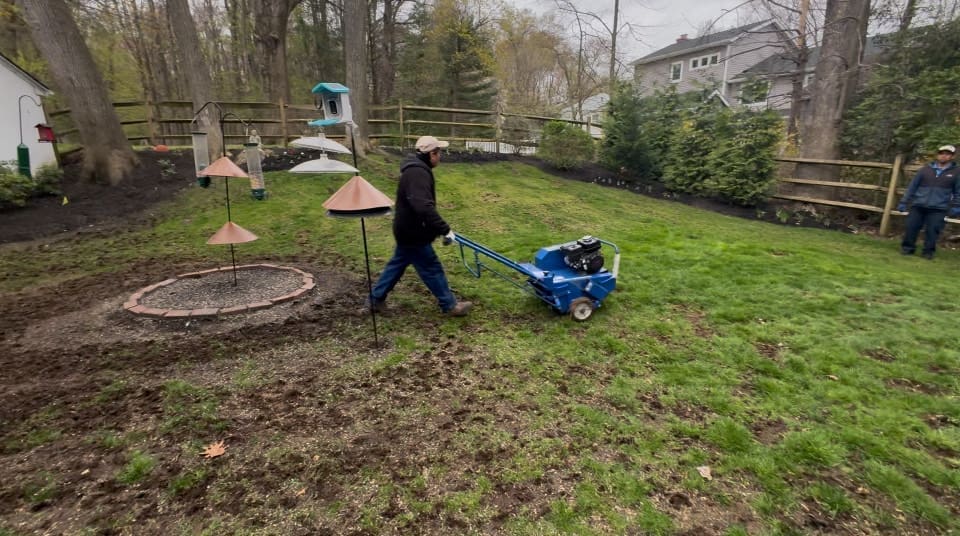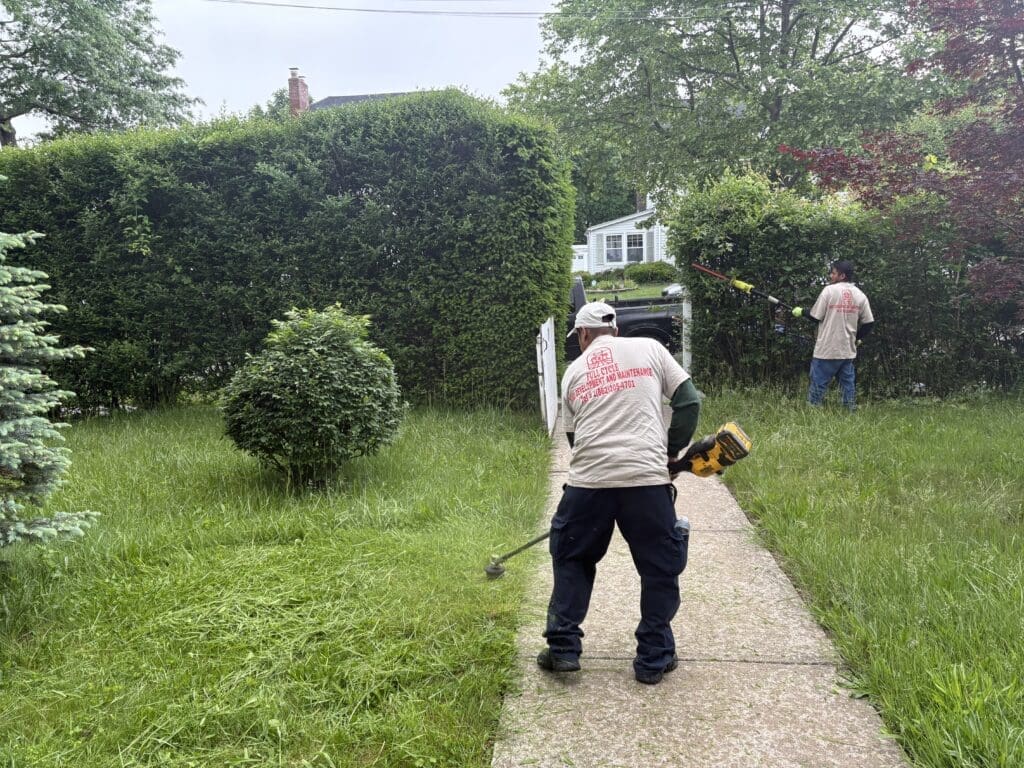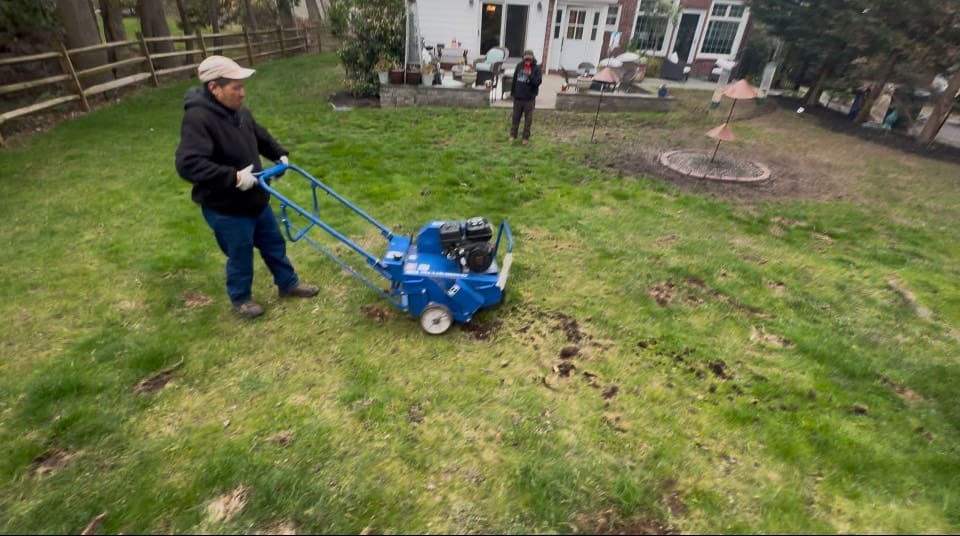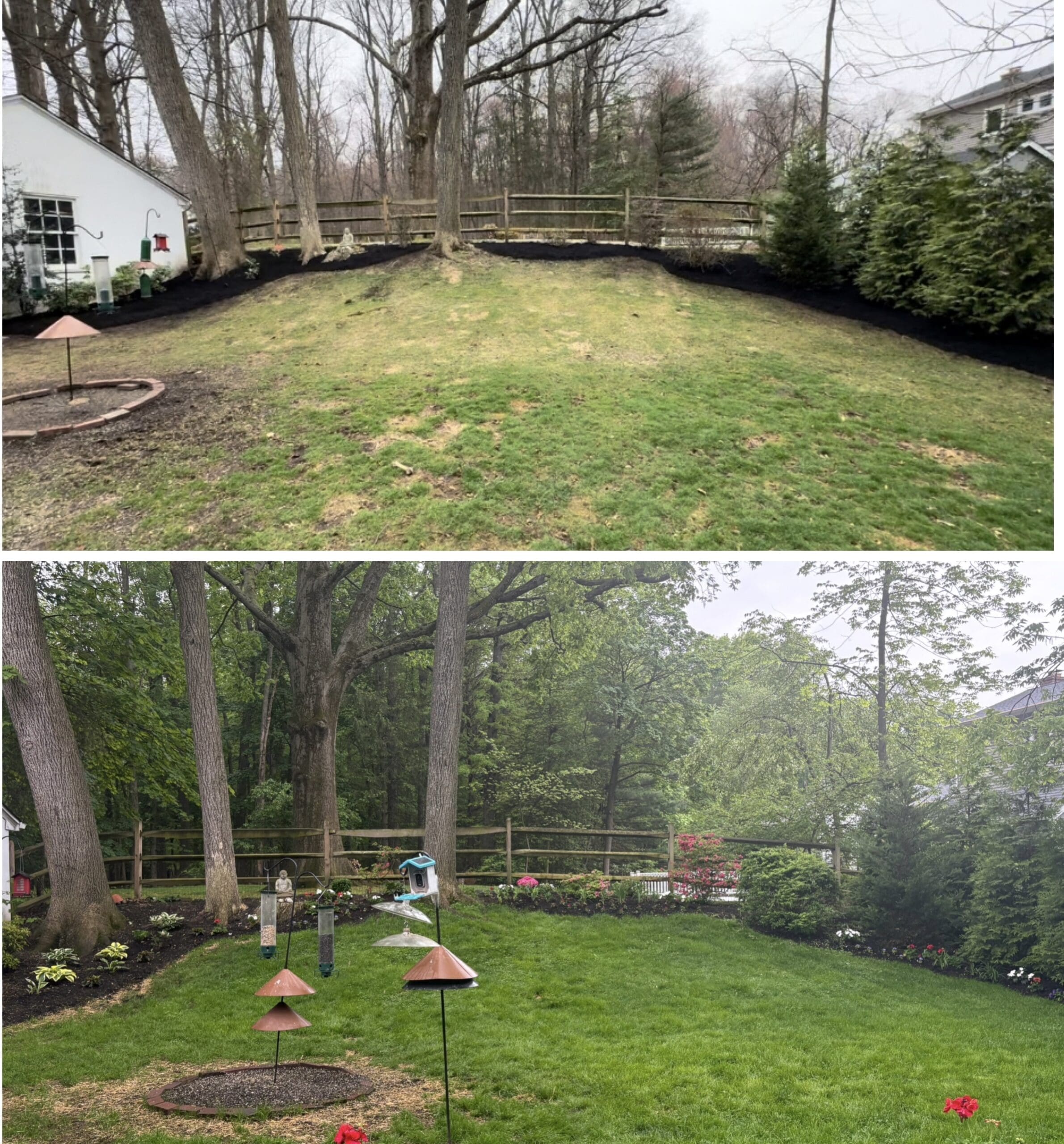



Which Cool Season Grass Is Best for Your New Jersey Lawn?
Cool season grasses are the most common in New Jersey because they thrive in our spring and fall temperatures. But not all grass is created equal — and the best grass for your lawn depends on how much sun your yard gets, how much foot traffic it handles, and how much time you want to spend maintaining it.
Here’s a breakdown of the most common cool season grasses in NJ and how they compare:
Kentucky Bluegrass
- Sun Tolerance: High
- Shade Tolerance: Low
- Foot Traffic Tolerance: High (self-repairing)
- Maintenance Level: Moderate to high (regular mowing and watering)
- Best For: Sunny lawns with active use; homeowners who want that classic, dark green “golf course” look.

Turf-Type Tall Fescue
- Sun Tolerance: High
- Shade Tolerance: Moderate
- Foot Traffic Tolerance: Very high (deep roots)
- Maintenance Level: Moderate (drought-tolerant once established)
- Best For: Lawns with mixed sun/shade and high activity. Great for pets and kids.

Fine Fescues (Creeping Red, Hard Fescue, Chewings)
- Sun Tolerance: Moderate
- Shade Tolerance: High
- Foot Traffic Tolerance: Low to moderate
- Maintenance Level: Low (less mowing, drought-tolerant)
- Best For: Shady or sloped areas, low-maintenance lawns, or naturalized settings.
Perennial Ryegrass
- Sun Tolerance: High
- Shade Tolerance: Moderate
- Foot Traffic Tolerance: Moderate
- Maintenance Level: Moderate (fast-growing, needs mowing often)
- Best For: Quick fixes, overseeding, or establishing a lawn fast. Germinates in just 5–10 days.

Add-On: Clover Grass (White Dutch Clover)
- Sun Tolerance: Moderate to high
- Shade Tolerance: Moderate
- Foot Traffic Tolerance: Low to moderate
- Maintenance Level: Very low (no fertilizer needed, drought-tolerant nitrogen boosting naturally from air)
How Can Full Cycle YDM Help You?
Top 7 Solutions to Making Grass Greener
A lush, green lawn is the pride of any homeowner. However, achieving that emerald carpet can sometimes feel elusive. If you’re in West Orange, NJ, or anywhere else in New Jersey, these top seven solutions will help make your grass greener, ensuring your lawn becomes the envy of the neighborhood.
1. Regular Mowing
One of the simplest ways to keep your grass healthy and green is regular mowing. Aim to trim your lawn once a week, but never cut more than a third of the grass blade at a time. This practice helps the grass retain moisture and promotes healthier growth.
2. Proper Watering
Watering your lawn effectively is crucial. It’s best to water deeply and infrequently—about one inch per week is typically sufficient. Early morning is the ideal time for watering to minimize evaporation and fungal diseases. Remember, overwatering can be just as harmful as underwatering.
3. Aeration
Aeration involves perforating the soil with small holes to allow air, nutrients, and water to penetrate the grass roots. This process helps alleviate soil compaction, encouraging deeper root growth and ultimately leading to a greener lawn. Consider aerating your lawn once a year, especially if you notice water pooling or bare patches.
4. Fertilization
Fertilizing your lawn provides essential nutrients that might not be present in the soil. Choose a slow-release, eco-friendly fertilizer to support sustainable lawn care. Apply it according to the product instructions, typically in the spring and fall, to ensure your grass receives the nutrients it needs to thrive.
5. Weed Control
Weeds compete with your grass for nutrients, water, and sunlight. Regularly removing weeds by hand or using a targeted herbicide can significantly improve your lawn’s health. For an eco-friendly approach, consider using natural herbicides or implementing a thick mulch layer to suppress weed growth.
6. Soil Testing
Testing your soil will help identify any nutrient deficiencies or pH imbalances that could be affecting your lawn’s health. Once you know the soil’s condition, you can amend it with the appropriate treatments to create an ideal environment for your grass.
7. Professional Lawn Care Services
Sometimes, enlisting the help of a professional landscaper can make all the difference. Whether you’re looking for a West Orange, NJ lawn care expert or another New Jersey lawn care professional, they can provide tailored solutions to improve your lawn. From customized fertilization plans to pest control and aeration services, a professional touch could be just what your lawn needs.
Achieving a greener lawn doesn’t have to be complicated. By implementing these seven solutions, you’ll be well on your way to having the lush, vibrant grass you’ve always wanted.